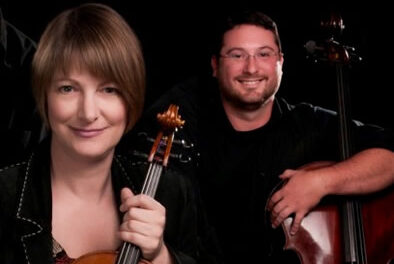On a recent trip to New York I discovered the odd fact that the birthplace of Eugene O’Neil, the father of American theatre, is now a Starbucks, with little more than a plaque to show for it. It just goes to show how quick we can be in America to throw out history for progress. Paying tribute to O’Neil, Raleigh Little Theatre’s production of Desire under the Elms, playing October 3 through October 26, will fall on the playwright’s 126th birthday (October 16). Helmed by director David Henderson, the production is a mixed blessing as it succeeds at building an odd and unsettling mood appropriate for the work, but fails to make the play feel relevant or fresh for a modern audience.
Desire Under the Elms, along with his later play Mourning Becomes Electra, represents O’Neil’s attempt to take themes and plot elements from Greek tragedies and translate them to an American setting — in this instance, the 1850s on a farm in New England. O’Neil doesn’t pick just one Greek play to update here as we see elements from the stories of Medea, Phaedra, and Oedipus, among others. Like so many Greek plays, the issue at hand is progeny: Who will take over when the father dies? And how will the son take to living in the shadow of the father? The father here being Ephriam Cabot, played with patriarchal conviction by Mark Phialas. Ephriam’s second wife was the mother of Eben, our young brooding protagonist. Brian Yandle played Eben as cool, confident, but quick to anger. Eben sees himself as the rightful heir to the farm, which rightfully belonged to his mother. So he bides his time, waiting for the old man to kick the bucket so he can take what’s his. But the old cur still has some life left, and remarries the younger Abbie, who finds herself attracted to her new stepson. Heather J Strickland makes a fine seductress as Abbie and the sexual tension between Abbie and Eben is apparent from their first scene.
O’Neil is noteworthy for being one of the first writers to use the American vernacular and to bring literary sophistication to the American stage. But unlike his superior Long Day’s Journey into Night and The Ice Man Cometh, Desire is a play showing its age. His more mature plays abound with subtext and deep ponderous plots. Here, the plot is largely melodramatic and characters repeat surface phrases like, “God, I’m more lonesome than ever!” and, “I hate the sight of you!” It’s unfortunate that Henderson’s direction does little to move the play away from the realm of melodrama as actors are quick to yell and shout their way through a scene. The result is a distant piece that feels a product of its time.
The beauty in the play was often found in what was left unsaid. Characters continually looked off in the horizon with the simple line, “Pretty.” Here language gave way to awe as characters seemed unable to articulate the beauty in front of them. Ephriam talks often of the walls he built around “his” land. Unknowingly, he’s built a wall around himself as well. Thus, relationships become uneasy alliances for each own’s selfish gain. And while there might be something “pretty” about the sun rising, the characters will never truly enjoy it because of their self-absorption.
Henderson’s direction does create an eerie tension throughout the play, crafted largely by long moments of silence. (As when Abbie quietly watches Eben prepare for a date in town.) These long pauses, unfortunately, also slow the action and there could be more use of sound cues during silences to build atmosphere. There is the occasional cricket chirp or rooster crowing, but the few sounds we did hear were often too quiet and left too suddenly to be effective.
Shannon Clark’s design provided a rustic and naturalistic home that feels properly aged and lived in. But this is O’Neil, and naturalism can very often give way to something resembling a dream. The frame of the house often rises to reveal the changing interior. In the play’s strongest scene, Abbie invites Eben into a parlor that had been empty since his mother’s death. And it’s here, while surrounded by white billowing curtains that give the moment a surreal look, that the two finally succumb to their forbidden desires.
With blatant themes of incest, infidelity, and Oedipal urgings, this might be one of the most unsettling plays Raleigh has to offer this fall season. The play might feel dated and melodramatic to casual theatregoers, but fans of the classics should enjoy this tribute to an American master, lest he forever be replaced by Starbucks.
Desire Under the Elms continues through Sunday, October 26. For more details on this production, please view the sidebar.











